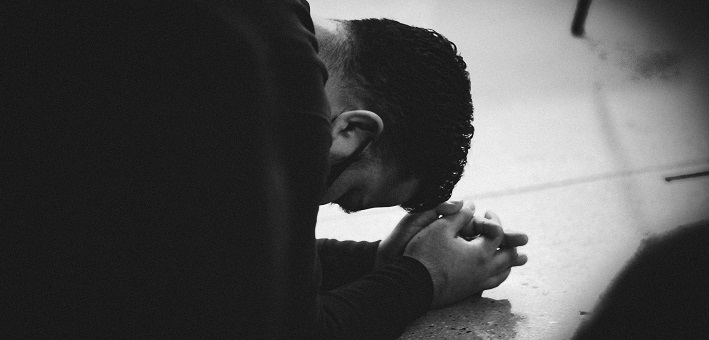Commentary on Jeremiah 14:7-10, 19-22
Are there limits to God’s forgiveness? Is there a point at which God will no longer forgive human behavior, a point at which personal or social evil is too great to be forgiven?
As a scholar who researches the violence of white supremacy and the still unfolding aftermath of colonialism in the United States of America (USA), these are questions I frequently grapple with. Does God forgive the sixteenth-century conquistadors, accompanying friars, and their sponsoring institutions whose genocides killed millions of indigenous persons and erased countless indigenous cultures in the Americas? Can God forgive the seventeenth century Christian theologians, ministers, and lay persons in what would become the USA who in the name of God devised modern notions of race and utilized those to implement and benefit from chattel slavery? Can God forgive those of us alive now—those of us who experience social privilege along lines of race, class, gender, sexuality, or ability—who still have not practiced reparations or dismantled the violent systems from which we benefit? Can God forgive us as we extract from the earth and consume the spoils in such a way that is driving the sixth mass extinction that this planet has ever known—the extermination of countless species, other than human creatures?
I know what our theological systems tell us to say. “Of course! God forgives anyone if only they ask!” However, this passage invites us to critically check that cheeky theological assumption and to sit with an alternative vision of God—one that might cause us some theological discomfort and that does not necessarily fit neatly into our tidy theological grids.
In this passage we find an unforgiving God, unswayed by desperate human pleas for forgiveness. This passage reveals a God whose forgiveness has limits, or perhaps boundaries. This is a God who fully sees the intense economic and ecological pain that the people of God have wrought on others, themselves, and the earth—it’s not cheating to read verses 11-18—but will still not forgive. Pictured here is a God who will not change God’s mind. God’s judgment for the injustice and unfaithfulness of God’s people is inescapable.
Let’s be honest. This is tough theology to work with. This passage represents a disturbing engagement between God and the people of Judah. The people lament their sins (verses 7-9), and they use every avenue of lament that they can. They earnestly confess (verse 7), and they appeal to God’s sense of shared history as their Savior (verses 8-9). In the second portion of the reading (verses 19-22), the people again lament to God, appealing to God’s sense of relationship, to the covenant that they had broken, and to God’s place among other gods. Yet God’s response is implacable. Their sins are insurmountable. Judgment is unavoidable.
Surrounding biblical texts provide some evocative and meaning-laden backstory. The first verses of the chapter (verses 1-6) present an evocative vision of economic and ecological devastation. This is a vision that brings to mind the ecological changes that are ravaging many ecosystems in our present day and—like the experience of God’s people in this passage, also connected to failures to fully embody God’s justice. This connection of such devastation to the experience of God’s judgment may be uncomfortable but is potentially meaning-laden in our contemporary context. The people’s lament is coming too late to prevent this collapse.
As was noted previously and bears repeating, the verses that are excluded (verses 11-18) also provide some important theological insight. Here we find particular reproof of religious leaders who “lie” and are misleading the people away from grappling with God’s judgment. One need not look far in the religious sphere to find leaders whose theologies and practices do not envision an expansive kin-dom of God in which those who are targeted by violent systems claim the center. Of particular note in these excluded passages is some insight into God’s character. We find God crying tears for God’s people and the violence which they are experiencing. These verses provide a glimpse of a God who is sorrowful for all of the violence and suffering which they encounter. Yet forgiveness is not granted. Judgment is unstoppable.
This is a harsh theology for an already harsh contemporary context in which too many folk who experience social privilege on some level (race, gender, class, sexuality, ability, et cetera) have dug in their heels as it relates to religion and politics. They are too often unwilling to make further concessions as it relates to their own dominant, privileged identities and formations that could lead toward a more just society. How do we preach this text in this context? How do we preach this text in a way that our people can find themselves within it? My colleague Rev. Dr. Gennifer Brooks wisely says, “You can catch more flies with honey than vinegar,” and while that is almost always true, the reality is that this is a vinegar passage. If connected to parallels in society, it has the potential to make us wince and pucker up our face a bit.
This passage provides us a vision of a God who is supremely committed to justice, and when God’s people repeatedly fail to live into God’s covenant with them, God is unwilling to compromise with them. This is a vision of God which speaks into the questions I asked at the beginning, and it invites us to check our privileged assumptions that “Of course! God forgives…” This is a God who may just mess us up. This is a God who is not to be toyed with. This is a theological vision that just might put a bit of “the fear of God” into us for failing to embody God’s justice.
If there is any faintest vestige of divine grace to be found in this passage, it is simply that God is still dialoguing with God’s people even after they have repeatedly breached all covenants with God to act justly in the world.
So are there limits to God’s forgiveness? Is there a point at which God will no longer forgive human behavior, a point at which personal or social evil is too great to be forgiven? If we listen to this passage and our surrounding contexts, those questions may just continue to haunt us.


October 23, 2022